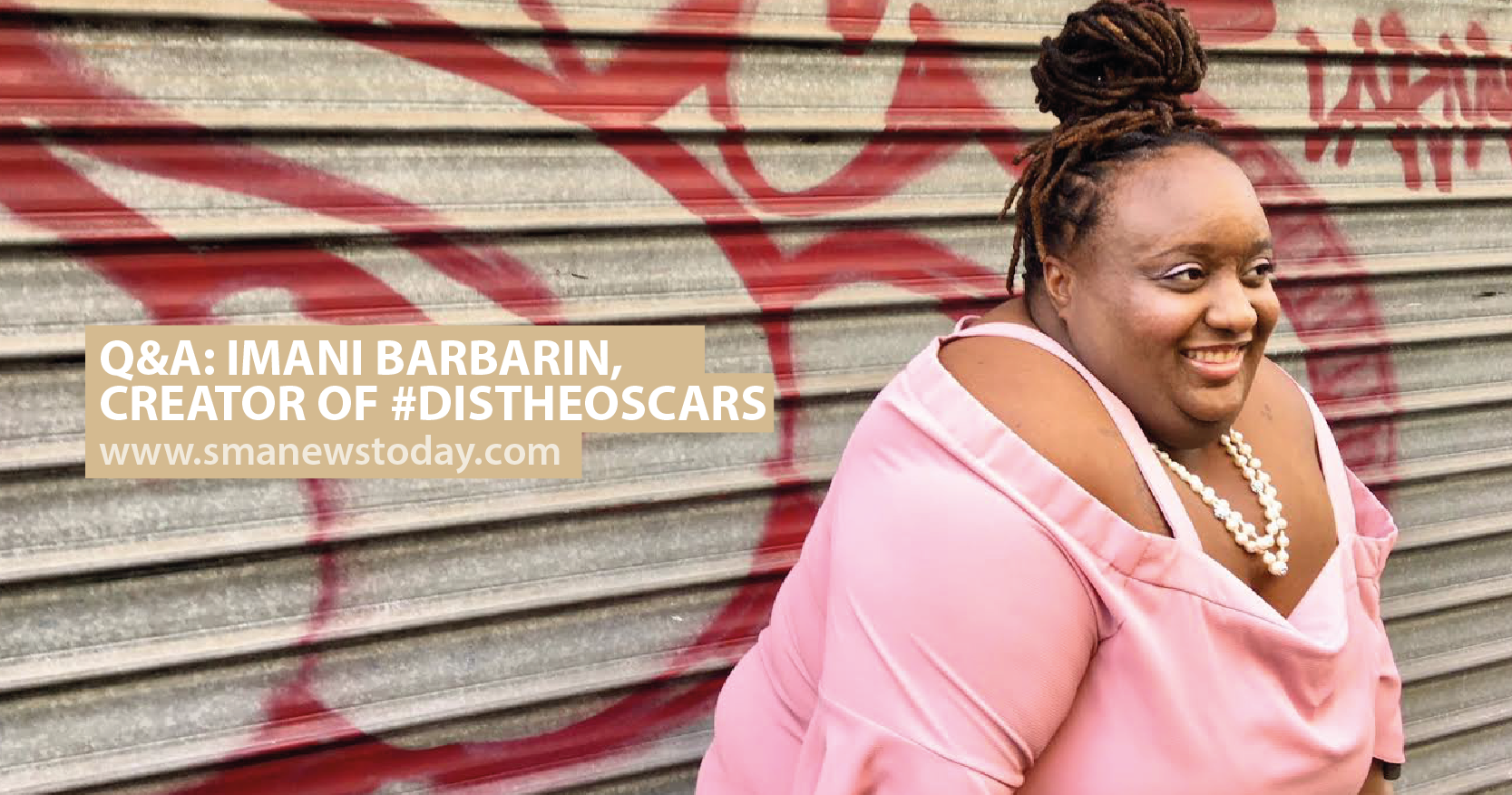-
Q&A: Imani Barbarin, Creator of #DisTheOscars

Imani Barbarin is a communications professional specializing in content creation, social media branding, and marketing. In early March, she created #DisTheOscars to call attention to the lack of disability representation in the Oscars. We took some time to chat with Imani about #DisTheOscars, media representation, and more.
Can you talk a bit about #DisTheOscars, and why you created the hashtag?
I created #DisTheOscars because I, like everyone who has been watching the news have seen the ways in which different minority groups have been reclaiming their narratives and demanding they be involved in the media creation process, however, I’ve seen a distinct lack of disabled people included in those discussions. I figured that the best way to draw attention to this issue would be to discuss it on a night during which people’s attention was already focused on media and diversity: The Oscars. I knew that with the recent release of Black Panther coupled with the #MeToo and #TimesUp movement, diversity would be on the tongues of everyone watching.Why do you believe that disability representation is so important?
Disabled people are one of the only groups no one seems to want to let tell our own stories, but artistry and using our voice (in whatever form that may take) are inherent to what it means to be disabled. We face the reduction of our rights and the indignity of our right to exist being debated at every level of society. It is more than important, but imperative that the realities of the disabled experience be told truthfully and with disabled bodies. Additionally, representation matters, there are many children that grow up, and adults that become disabled later, with little knowledge that there are those that came before them, that move through the world in the same way, that have made life a touch easier. There is also a community that goes unseen that is welcoming and life-saving — and the stereotypes that seem to define this community from the outside have little to do with who we are and what we are capable of.What do you want and/or expect the future of disability representation to look like?
I want disability representation to be cultivated for (and by) disabled people and to reflect the diverse communities we represent. I want programming that is multi-racial, multicultural, reflective of all religious backgrounds, sexual orientations and genders. It isn’t enough to simply have disabled people on screen, but characters must be developed and nuanced. Disability is not a personality.Stories need to take on the issues we currently face such as healthcare battles, discrimination and isolation — not simply traffic in inspiration porn for the abled gaze. When people identify with a story they can be spurred on to confront their personal behaviors to make change.
How can people get involved in the #DisTheOscars movement now that the Oscars have come and gone?
#DisTheOscars was meant to be a fleeting moment to get disabled people speaking about these issues at a time abled people would be more likely to listen, but the conversation between abled media producers and disabled artists needs to be fostered. Wherever possible, the voices and stories of disabled people needs to be boosted in the public sphere. Wherever possible stand in the fray and vouch for the work and artistry of disabled people. Make sure their work is able to be seen. Call out narratives that perpetuate stereotypes that disabled people are forced to combat in their daily lives. Finally, call upon your faves to hire disabled people in the media production process.You can find Imani online at imanibarbarin.com, crutchesandspice.com, and @Imani_Barbarin.
Get involved in the conversation! Share your perspective here.
Log in to reply.